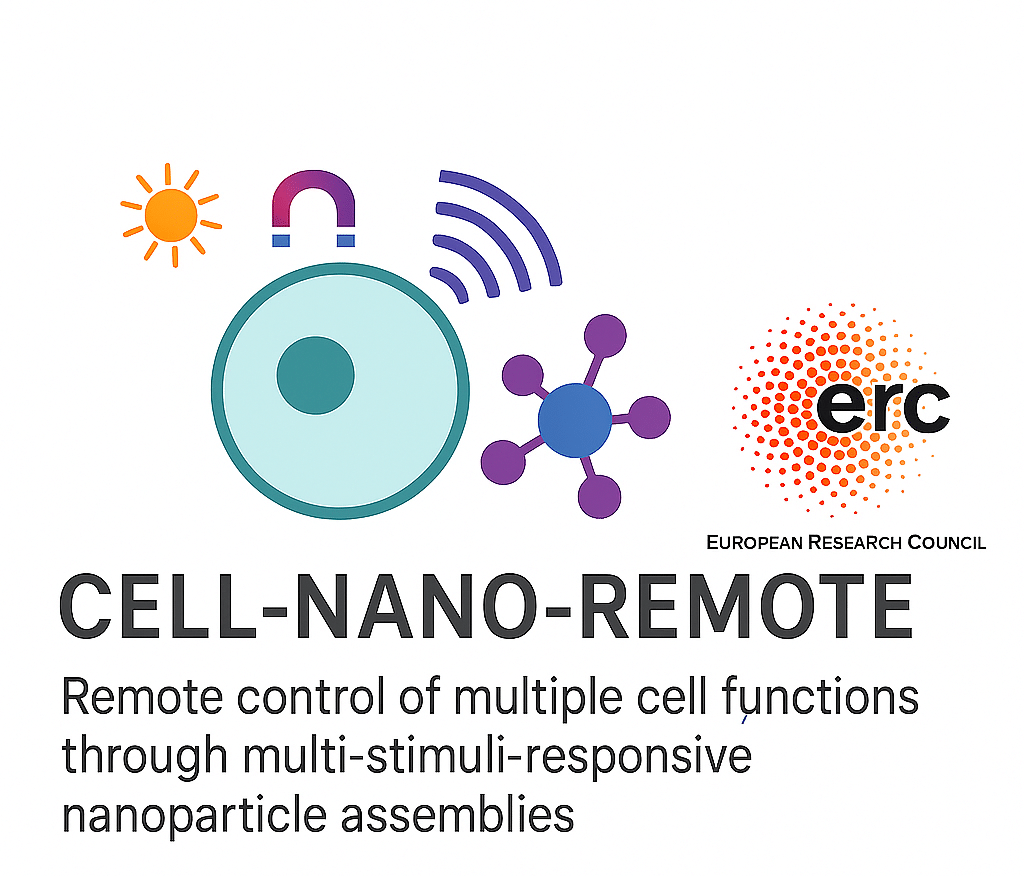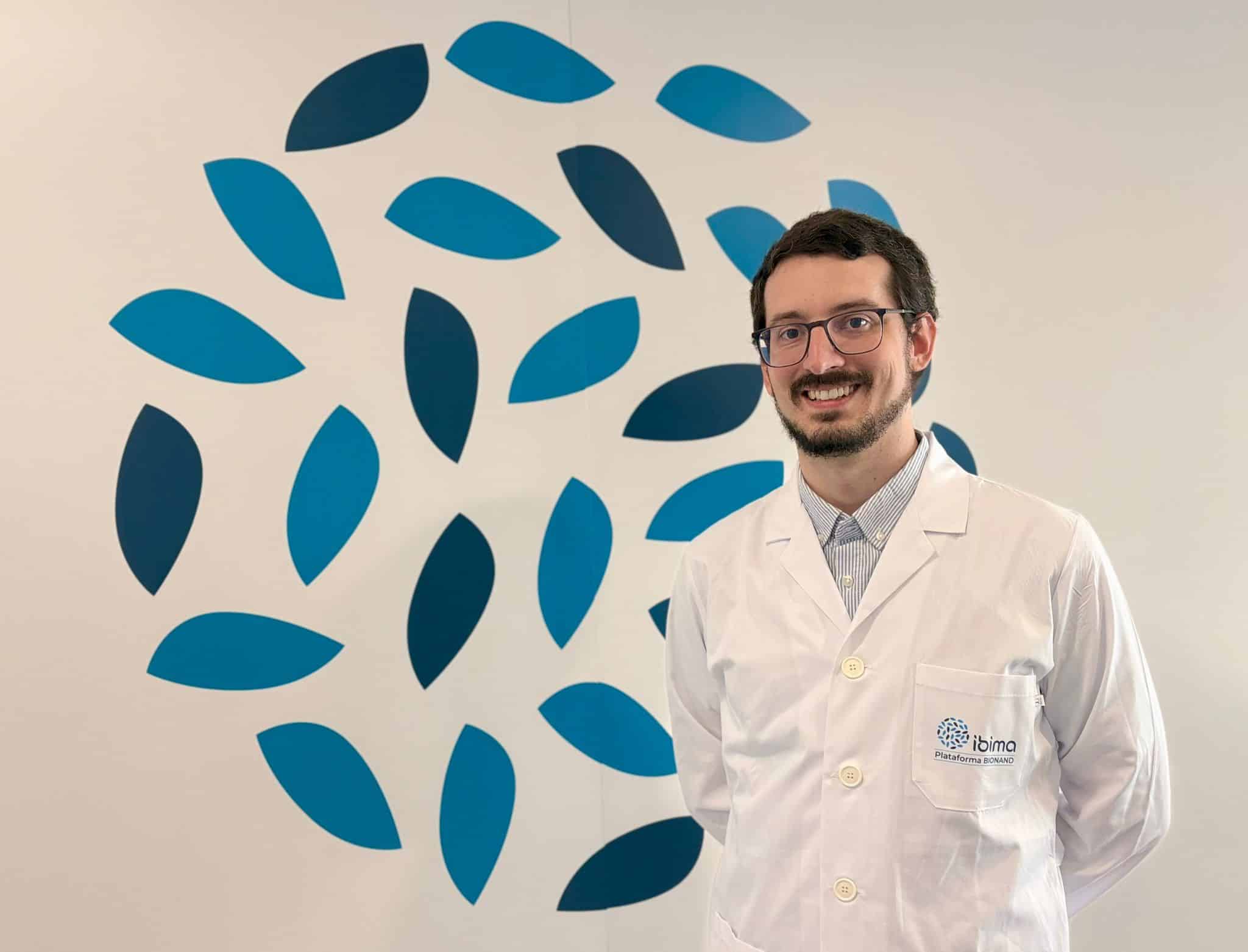CELL-NANO-REMOTE
Remote control of multiple cell functions through multi-stimuli-responsive nanoparticle assemblies
ABSTRACT
CELL-NANO-REMOTE aims to achieve flexible, remote control over therapeutic cell behaviour. In previous work in optogenetics and magnetogenetics, only partial remote cell control has been attained using light or magnetic fields as triggers. Furthermore, these approaches are generally limited to single cell responses, typically influencing one particular gene, receptor, or ion channel. In contrast, CELL-NANO-REMOTE seeks to obtain independent control over various cell functions without cross-activation upon application of external stimuli (light, magnetic fields or ultrasound).
To surpass the limitations of current strategies and achieve the ambitious goal of the project, CELL-NANO-REMOTE combines various stimuli-responsive nanoparticles (NPs) and genetic engineering as ex vivo modification tools of the target cells. To ensure uniform and simultaneous uptake of all the different NPs by cells, they will be assembled into multi-NP assemblies. These multi-NP assemblies will be characterized by nano flow cytometry, a novel technique which enables optimization of assembly conditions to ensure the desired ratio of each component. In response to the application of external stimuli, the NPs will release different cargos inside the engineered cells, providing control over various cell functions. To demonstrate the potential of this approach to improve cell therapies, the project will unfold in two stages: a proof-of-concept stage using a model cell line followed by a second stage showcasing two case studies, in immunology and in regenerative medicine.
The CELL-NANO-REMOTE approach will offer flexible, real-time command of cell behaviour, allowing for adaptable and dynamic control of cell responses. This remote-control system could revolutionize how we manipulate therapeutic cells, offering significant advancements for a wide range of pathologies. Furthermore, this strategy will have applications not only in cell therapy, but also in biotechnology more broadly.

Project Information
-
-
- Program: ERC-2025-STG – ERC STARTING GRANTS
- Project Reference: 101219775
- Duration: January 2026 to December 2030
- Implementation Centre: Bionand Building
- Research group of IBIMA involved: Drug and Allergen Allergic Diseases Research Group
-
Principal Investigator

